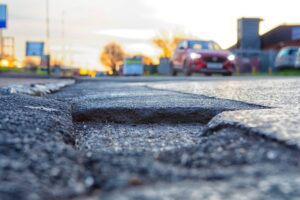November 21st marks Ask Her to Stand Day, an annual celebration run by the 50:50 Parliament campaign encouraging people to ask the women in their lives to consider standing for political office.
The 21st November is used as it marks the passing of the Qualification of Women Act 1918, which granted the vote to (some) women in Britain for the first time.
To celebrate Ask Her To Stand Day 2025, 50:50 Parliament hosted a panel in Parliament of inspiring political women from across the political spectrum. The panel was chaired by 50:50 Parliament CEO Lyanne Nicholl and included:
- Stella Creasy – Labour Member of Parliament for Walthamstow
- Helen Maguire – Liberal Democrat Member of Parliament for Epsom and Ewell
- Mims Davies – Conservative Member of Parliament for East Grinstead and Uckfield, and Shadow Secretary of State for Wales
- Melissa Keveren – Founder of ‘Girls Who Talk Politics’
- Councillor Nanda Manley-Browne – Labour Councillor in Lambeth, and Council Cabinet member

The current challenges
50:50 Parliament CEO Lyanne Nicholl opened the session with a stark warning – in 2025 the progress of women’s representation in politics is “vulnerable.”
“We really need to be paying attention.”
50:50 Parliament predict that under current projections female representation in politics is “more likely to go backwards than forwards” in the coming years, and that the current 41 per cent of female MPs could drop to 26 per cent at the next election if nothing is done to combat this.
This means that we are in “a critical time in the fight for equal representation.”
This is where Ask Her To Stand Day comes in – encouraging women of all parties and all walks of life to put themselves forward and run for political office, shoring up female representation in politics for decades to come.
Labour MP Stella Creasy warned that since she was first elected to Parliament in 2010: “This place is going backwards in its capacity to enable a broader range of lived experiences to be here and to be represented and women, particularly women of colour and women with children, are going to be the casualty of it unless we refuse to take it.”
Barriers to women in politics
When asked about what barriers the panellists had faced to putting themselves forward for election, Lib Dem MP Helen Maguire said: “I never saw myself being here.”
The challenges of balancing motherhood and family commitments with a political role stood out as a common experience across the three female MPs.
Creasy described Parliament as a “hostile environment” for mothers, which has meant that “mothers are absent from this place.”
Conservative MP Mims Davies took a different perspective on balancing Parliament and motherhood. While she acknowledged that having “small children” had been a barrier to her entering politics, she reassured the audience that “it is doable” to be a female MP with young children.
Davies prasied the “flexibility” available for MPs: “You will have to make it work for you, your constituents and your priorities.”
Why having more women in politics is so important
When addressing the importance of female representation in politics, Lyanne Nicholl said: “Equality is not a nice to have, it is essential if we going to meet the challenges of our age, whether it be defence, AI, violence against women and girls, poverty, climate crisis, food security.”
‘Girls Who Talk Politics’ founder Keveren concurred with Nicholl: “Decision making is always better when there are diverse people and voices around the table.”
Keveren founded ‘Girls Who Talk Politics’ in 2020 to get more women involved in politics, motivated by the fact that women “didn’t feel comfortable sharing their political opinions.” The platform aims to facilitate “cross-party discussion.”
Lambeth councillor Nanda Manley-Browne highlighted the positive impacts that female politicians can have in their local communities.
She described her role as being a “conduit” between her local community and the council, and one in which she can help ensure that “services meet the diverse needs of everyone”, as the “closest point of democracy” to people’s everyday lives and needs.
Davies also praised the possibilities that being in the room in politics offers to women: “You can get things done.”
“You have a voice here.”
How you can Ask Her To Stand
As said by attendee Licia Heath, CEO of Women for Election Australia, for women: “Running is winning.”
“You will never feel ready but step forward anyway.”
So, if you know a woman that you think would be an excellent candidate, Ask Her to Stand today, and direct her to Sign Up To Stand on the 50:50 Parliament website.
From there, the 50:50 Parliament team will be ready to support you, whatever your background or political persuasion.
Featured image via 50:50 Parliament / Natasha Kaeda.




